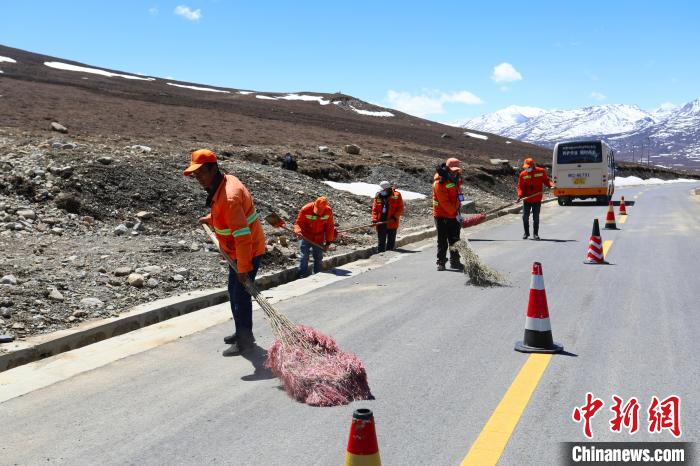Farmer and herdsmen get employed in rural highway maintenance work

At the beginning of spring, the transportation department of Linzhou County, Lhasa City began to organize and implement the maintenance works of county roads 102, 104 and 105. According to Badan Thondrup, director of the Transportation Management Office of Linzhou County Transportation Bureau, the three highways cover three townships and seven administrative villages, benefiting more than 20,000 farmers. As soon as the maintenance work started, people in the villages along the route got employment opportunities at their doorsteps.
One of the workers on the construction site is from Baiding Village, named Tagya Tsering. He tells the reporter that many villagers like him are working on the rural highway construction project at their doorstep. He can get a monthly fixed income of 6,000 to 7,000 Yuan. Besides, he is able to go home to take care of the elderly after getting off from work every day, which makes him very satisfied.

In recent years, the Transportation Department of the Tibet Autonomous Region has implemented the policy of benefiting the people by handing over government-invested projects of less than 4 million yuan to local farmers and herdsmen construction teams who meet the qualifications, and ensuring that more than 80% of the construction workers are farmers and herdsmen. The policy has greatly mobilized the enthusiasm of local people to participate in rural road construction.
In Tibet, the main leaders of governments at all levels are in charge of the construction, management, maintenance and operation of rural roads. The concept of co-construction, co-governance and sharing of rural roads has increasingly become a consensus.
At the same time, transportation departments across Tibet are also actively developing public welfare posts in rural road maintenance to guide farmers and herdsmen to participate in the work. Since the 13th "Five-Year Plan" period, a total of 27,689 rural road managers benefited from ecological compensation in rural road maintenance in the region, and a total of 96.91 million yuan of subsidy funds are cashed out.

